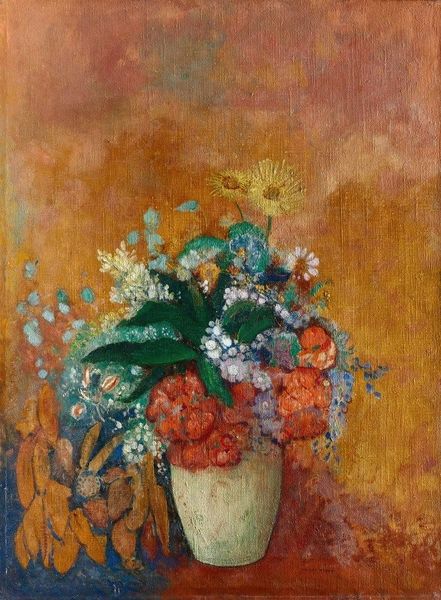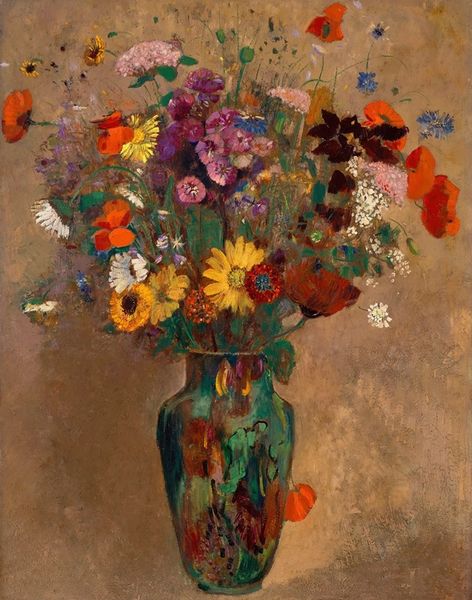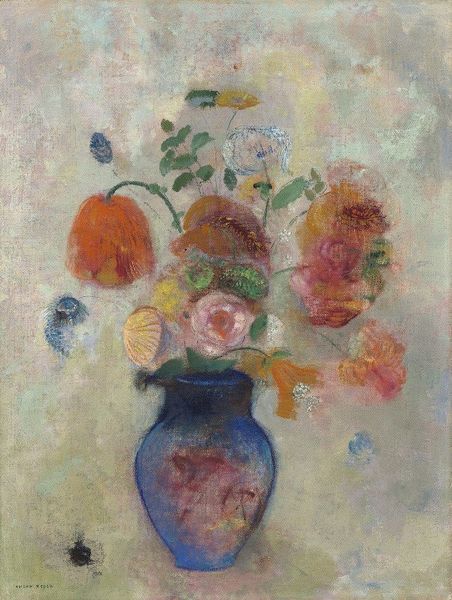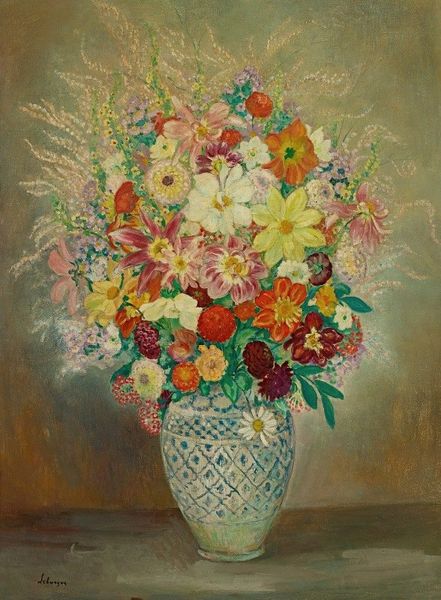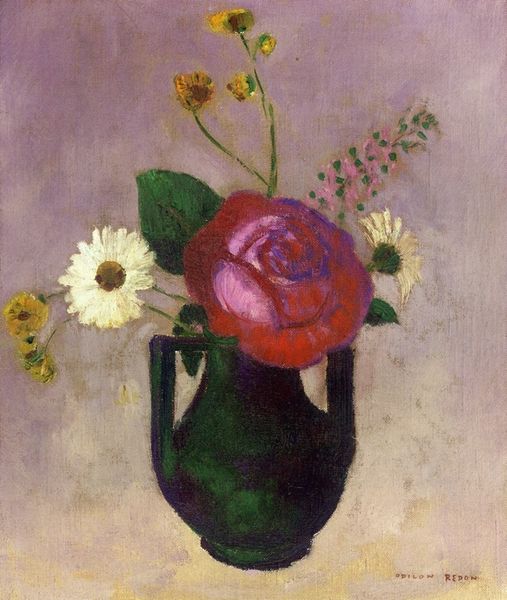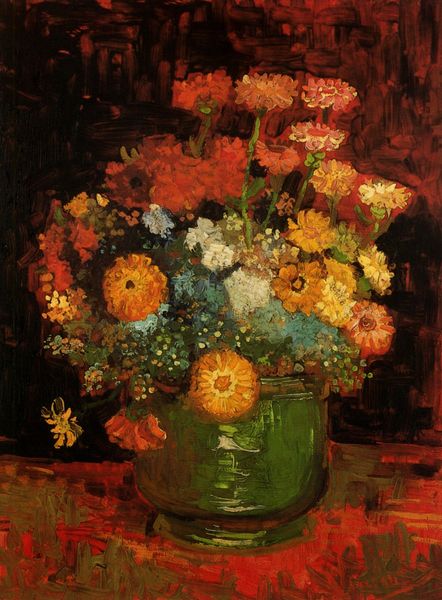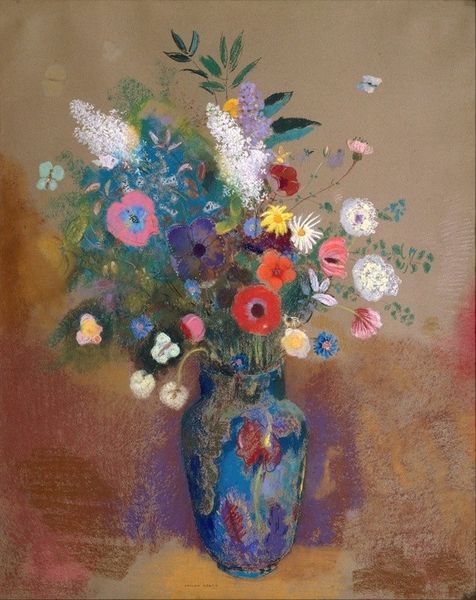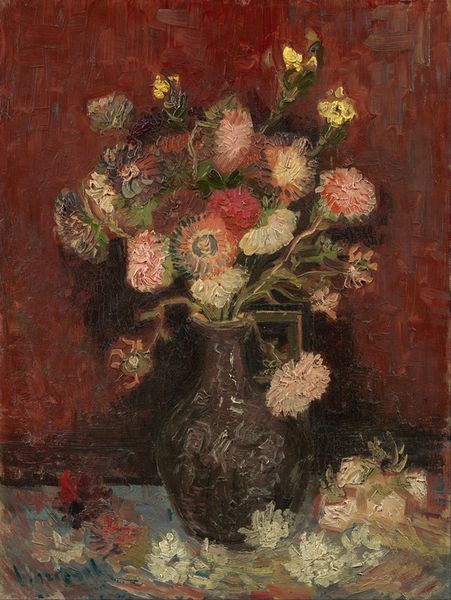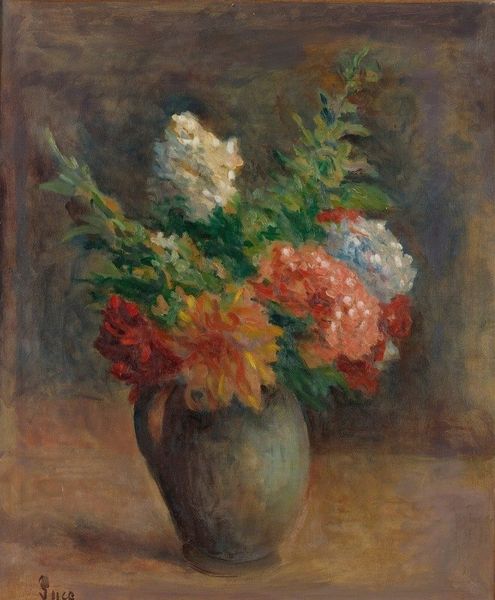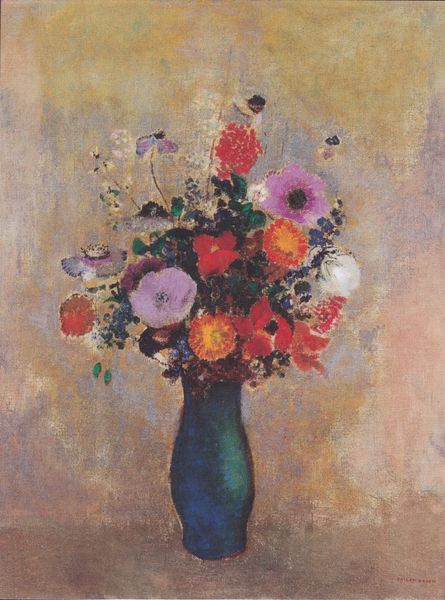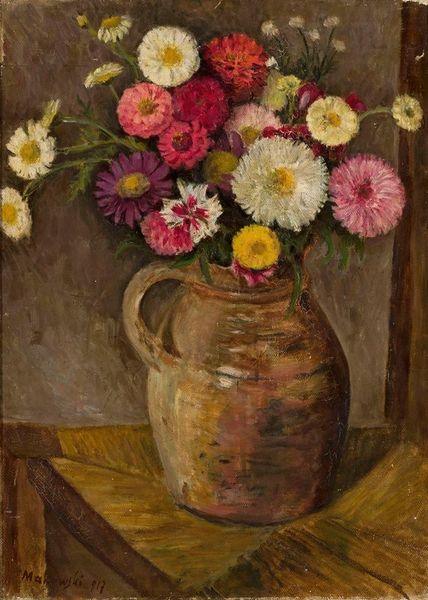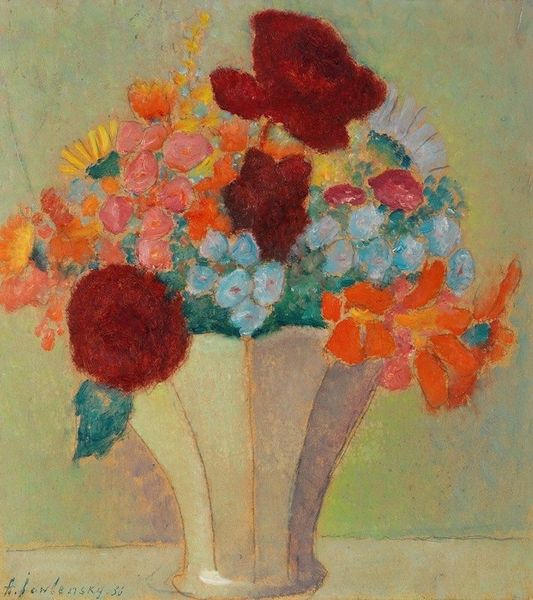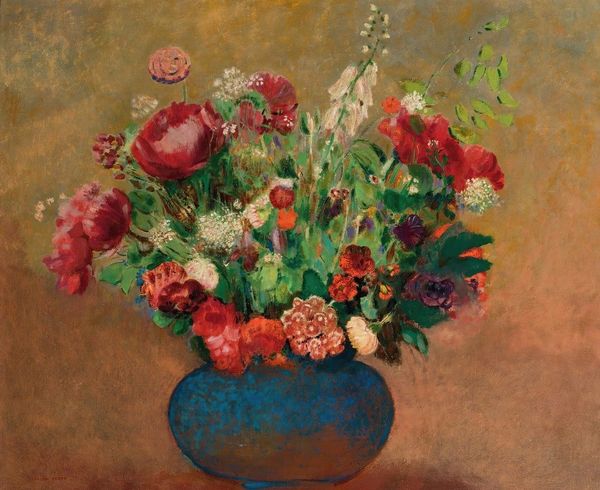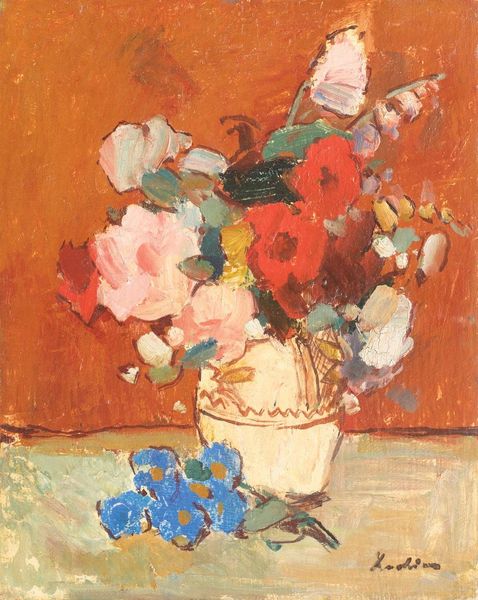
Copyright: Public Domain: Artvee
Curator: The blooms practically burst from this oil painting! The colors are rich, the forms gently abstracted... It's like a hazy memory of a perfect garden. I’m reminded of that euphoric dream state just before fully waking up. Editor: "Bouquet in a Chinese Vase" it's called, by Odilon Redon. Painted sometime between 1912 and 1914, a period when he explored vivid colors and dreamlike imagery. It’s fascinating how he synthesizes impressions. What symbols do you read from the painting? Curator: The vase itself, adorned with what seem like little painted butterflies or fleeting moments, roots this floral fantasy. It speaks of Orientalism—a Western fascination with Eastern aesthetics—but here, it feels more personal, a vessel holding fleeting beauties rather than an imperialistic statement. The flowers reach outwards, seemingly searching the universe. They yearn, it's sweet but also full of a secret yearning. Editor: Redon was deeply influenced by Symbolism, and flowers often carry complex meanings. Are these emblems of love, of mortality, or of spiritual ascension, do you think? The flowers' arrangement, reaching upwards against that somber brown background—the contrast enhances their fragility and ephemeral beauty. Curator: Probably all those things! It feels more intimate than declarative; it’s as if Redon simply captured a feeling of nature's temporary joy, without the need to hammer in meaning. It doesn't feel grandiose. And the light! See how it kisses each petal. Editor: The muted yet saturated palette suggests the influence of Impressionism and even a touch of Fauvism in its raw expression. The floral motif connects across centuries of art, and, of course, vanitas paintings, those Dutch masterpieces where bouquets are heavy with memento mori, skulls hidden amongst the petals, constant reminders of life's transience. I love this approach because, in Redon's hands, what seems morbid becomes comforting, reassuring! Curator: Yes! Like finding beauty in fading moments, it is rather bittersweet, and hopeful. It feels like embracing that inevitable turn in life.
Comments
No comments
Be the first to comment and join the conversation on the ultimate creative platform.
